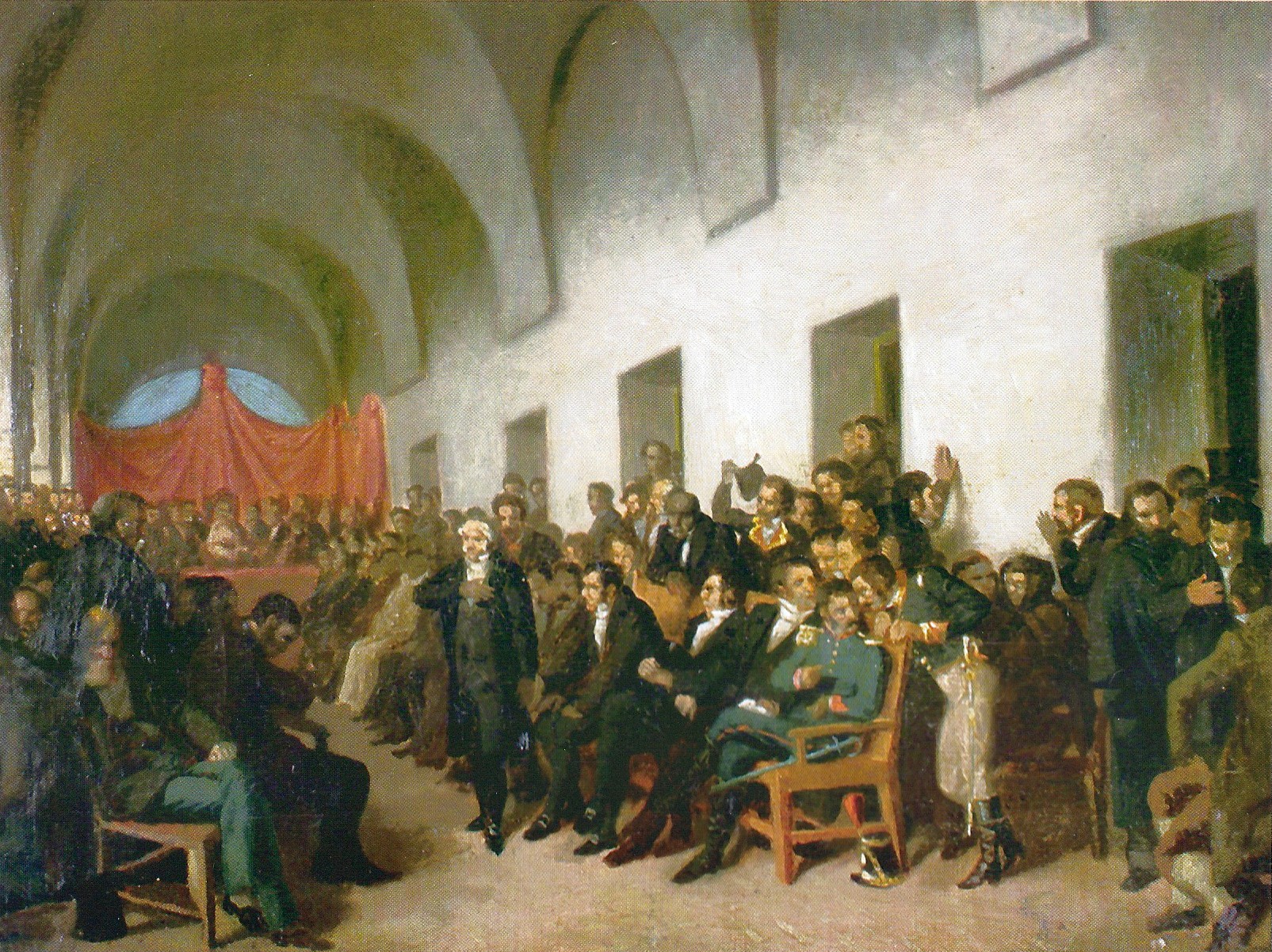|
José Miguel Pey
José Miguel Pey y García de Andrade (March 11, 1763 – August 17, 1838) was a Colombian statesman and soldier and a leader of the independence movement from Spain. He is considered the first vice president and first president of Colombia. He was a centralist. Background Pey, a Criollo, was born on March 11, 1763, in Santa Fe de Bogotá, New Granada into a distinguished family. His father, Juan Francisco Pey, was an '' oidor'' of the '' Audiencia'' of Santa Fe de Bogotá, one of the most important positions at the time. Pey studied at the '' Colegio Mayor de San Bartolomé'', graduating as a lawyer in 1787. Under the rule of Viceroy Antonio José Amar y Borbón, Pey was elected ''alcalde'' of Bogotá, replacing José Antonio de Ugarte in January 1810. Within a few months, various independence riots broke out around the viceroyalty, and the turmoil soon arrived in the capital. Vice Presidency Pey was ''alcalde'' of Bogotá at the time of the Cry of Independence, a ... [...More Info...] [...Related Items...] OR: [Wikipedia] [Google] [Baidu] |
Vice President Of Colombia
The vice president of Colombia (Vice president of the Republic) is the second-highest officer in the executive branch of the Government of Colombia, national government, after the president of Colombia, and ranks first in the Colombian presidential line of succession, presidential line of succession. The vice president is indirectly elected together with the president to a four-year term of office by the people of Colombia through the Universal suffrage, Popular Vote. Since the passage of the Article 102 Amendment (in 1991) to the Constitution of Colombia, Colombian Constitution, the vice president may also be appointed by the president to fill a vacancy, upon leave of absence or death, resignation, or removal of the president. Since the 1990s, the vice president has been afforded an official residence at the House of the Vice President, Vice Presidential House of Bogotá, D.C. The vice president cannot assume presidential functions on temporary absences of the president such a ... [...More Info...] [...Related Items...] OR: [Wikipedia] [Google] [Baidu] |
Cabildo (council)
A cabildo () or ayuntamiento () was a Spanish Empire, Spanish colonial and early postcolonial administrative council that governed a municipality. Cabildos were sometimes appointed, sometimes elected, but were considered to be representative of all land-owning heads of medieval household, household (''vecinos''). The colonial cabildo was essentially the same as the one that was developed in Middle Ages, medieval Crown of Castile, Castile. The word ''cabildo'' has the same Latin root (''capitulum'') as the English word wiktionary:chapter, chapter and in fact is also the Spanish word for a cathedral chapter. Historically, the term ''ayuntamiento'' was often preceded by the word ''excelentísimo'' (English language, English: "most excellent") as a style (manner of address), style of office in referring to the council. That phrase is often abbreviated ''Exc.mo Ay.to'' History The Castilian cabildo has some similarities to the ancient Roman ''municipium'' and ''civitas'', especial ... [...More Info...] [...Related Items...] OR: [Wikipedia] [Google] [Baidu] |
José Gonzalez Llorente
José is a predominantly Spanish and Portuguese form of the given name Joseph. While spelled alike, this name is pronounced very differently in each of the two languages: Spanish ; Portuguese (or ). In French, the name ''José'', pronounced , is an old vernacular form of Joseph, which is also in current usage as a given name. José is also commonly used as part of masculine name composites, such as José Manuel, José Maria or Antonio José, and also in female name composites like Maria José or Marie-José. The feminine written form is ''Josée'' as in French. In Netherlandic Dutch, however, ''José'' is a feminine given name and is pronounced ; it may occur as part of name composites like Marie-José or as a feminine first name in its own right; it can also be short for the name ''Josina'' and even a Dutch hypocorism of the name ''Johanna''. In England, Jose is originally a Romano-Celtic surname, and people with this family name can usually be found in, or traced to, the ... [...More Info...] [...Related Items...] OR: [Wikipedia] [Google] [Baidu] |
